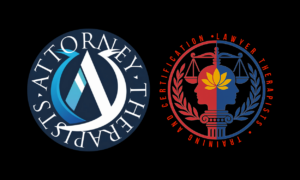The transition from law school to practice is a significant shift for any attorney, but for those entering Big Law firms, the challenges can be particularly daunting. Junior associates face immense pressure from billable hour requirements, client demands, firm expectations, and competitive work environments. This article explores the primary stressors facing junior associates in Big Law and presents evidence-based approaches to mitigate these pressures while fostering a sustainable and successful legal career.
The Pressures of Big Law: An Overview
1. Billable Hour Requirements and Work-Life Balance
One of the most well-documented challenges for junior associates is the pressure to meet high billable hour targets, often exceeding 2,000 hours annually. Studies indicate that this requirement can lead to long workweeks, often in excess of 60 hours, leaving little room for personal time, rest, or self-care.
2. High Performance Expectations
Big Law firms attract top legal talent, fostering a hyper-competitive environment where junior associates feel pressured to prove their worth quickly. Research suggests that high-pressure environments can lead to burnout, anxiety, and a decline in overall job satisfaction.
3. Client and Partner Demands
Junior associates must balance responsiveness to partners and senior attorneys while also handling client demands. The need for immediate turnaround on complex matters, coupled with minimal control over workload distribution, exacerbates stress levels.
4. Lack of Autonomy and Job Uncertainty
Junior attorneys often have little control over the assignments they receive and may not see the immediate impact of their work. Additionally, many associates fear termination if they do not meet firm expectations, adding to job insecurity.
Evidence-Based Strategies for Managing Big Law Stress
1. Time Management and Workload Prioritization
Studies in occupational psychology highlight the importance of structured time management techniques in high-demand professions. Junior associates can benefit from:
The Eisenhower Matrix to distinguish urgent tasks from important but non-urgent work.
Time blocking to allocate dedicated hours for deep work, email responses, and personal breaks.
Delegation and collaboration when appropriate to reduce inefficiency and maximize productivity.
2. Cognitive Reframing and Stress Resilience
Cognitive-behavioral techniques have been shown to help professionals navigate high-pressure environments. Junior associates should consider:
Reframing stress as a challenge rather than a threat, which can improve motivation and performance.
Practicing self-compassion by recognizing that mistakes are part of the learning process.
Setting realistic goals to avoid perfectionism, a common trait among high-achieving legal professionals.
3. Building Professional Support Networks
Social support plays a crucial role in mitigating workplace stress. Research suggests that attorneys who cultivate relationships within their firm and broader legal community experience higher job satisfaction. Strategies include:
Finding a mentor who can provide guidance on firm culture, career development, and work-life balance.
Participating in associate networking groups to foster peer support and knowledge-sharing.
Engaging in external professional organizations, such as bar associations and industry groups, to expand professional connections beyond the firm.
4. Mindfulness and Mental Health Interventions
Law firms are increasingly recognizing the importance of mental health support. Evidence-based interventions include:
Mindfulness meditation, which has been shown to reduce stress and improve focus among legal professionals.
Accessing Employee Assistance Programs (EAPs) or therapy services to manage anxiety and work-related stress.
Practicing regular physical exercise, which is linked to improved cognitive function and emotional regulation.
5. Strategic Career Planning and Long-Term Perspective
Junior associates should proactively manage their careers by:
Clarifying long-term professional goals to maintain perspective and avoid feeling trapped by immediate pressures.
Exploring internal and external career opportunities, recognizing that success in Big Law does not necessarily mean making partner.
Developing a specialization early to build expertise and distinguish oneself within the firm.
Conclusion
The pressures of Big Law are substantial, but they do not have to be insurmountable. By implementing evidence-based strategies in time management, cognitive resilience, professional networking, mindfulness, and long-term career planning, junior associates can build sustainable careers without compromising their well-being. Law firms also play a critical role in supporting their young attorneys by fostering a culture that prioritizes mentorship, reasonable expectations, and mental health resources. Addressing these challenges head-on will not only benefit individual attorneys but also strengthen the legal profession as a whole.









